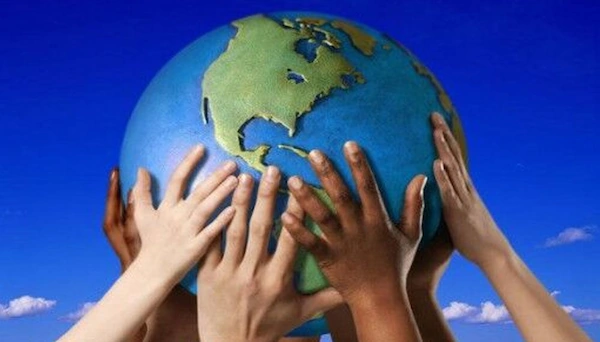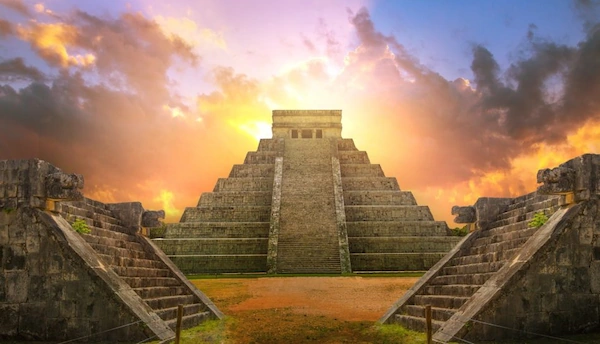
In the urgent discourse surrounding climate change and environmental degradation, we often hear passionate calls to “save the planet.” Yet, this framing fundamentally misunderstands the reality of our predicament. Earth—a 4.5 billion-year-old celestial body that has survived asteroid impacts, supervolcano eruptions, and five mass extinction events—does not need saving. Our planet will endure long after humans have disappeared from its surface. What truly requires salvation is humanity itself, from the consequences of its own actions.
This paradigm shift invites us to examine a more profound question: How can we, as a species, transcend the self-destructive patterns that threaten our continued existence? The answer begins not with external technological solutions alone, but with a fundamental inner transformation—a journey toward deeper self-knowledge and expanded consciousness.
The Illusion of Separation: Rethinking Human Identity
The root of our ecological crisis lies in a pervasive misperception of who we are. Modern consciousness, shaped by industrial capitalism and reductionist science, has created a sense of separation—between humans and nature, between mind and body, between self and other. This fragmentation has allowed us to view the natural world as mere resources to be exploited rather than a living system of which we are an integral part.
Many people identify themselves primarily as biological entities defined by physical boundaries—skin-encapsulated egos competing for survival and resources. This limited self-concept keeps our awareness trapped at what psychologist Abraham Maslow called the “deficiency level” of existence, where behavior is driven by perceived lack and fear. From this restricted consciousness emerges the pathological pursuit of endless economic growth, overconsumption, and environmental exploitation.
To evolve beyond these destructive patterns requires recognizing a more expansive truth about our nature. Beyond our physical forms and psychological conditioning, humans possess a dimension of being that transcends materiality—call it soul, spirit, or higher consciousness. This is not merely a religious concept but a phenomenological reality accessible through direct experience. When we touch this deeper aspect of ourselves, we discover our fundamental interconnection with all life.
The Inner Journey: Awakening to Our Authentic Nature
The journey toward authentic self-knowledge follows a time-honored path traveled by contemplatives across cultures and eras. This inner exploration encompasses several interconnected dimensions:
- Radical Self-Inquiry: Beyond casual self-reflection lies the courageous examination of our deepest assumptions, beliefs, and conditioned patterns. This involves questioning not just what we think, but how we think—the very structure of our consciousness that shapes our perception of reality. Practices like meditation, journaling, and depth psychotherapy can facilitate this inquiry, revealing the constructed nature of our identity and opening spaces for genuine transformation.
- Embodied Awareness: Our bodies hold wisdom that transcends intellectual understanding. Through practices that cultivate somatic intelligence—mindful movement, breathwork, and sensory awareness—we can access knowledge stored in our physical form. This embodied wisdom often reveals the artificiality of the mind-body divide, showing how our physical well-being is inseparable from ecological health.
- Emotional Maturation: Developing emotional intelligence means more than managing feelings; it involves developing a nuanced relationship with our emotional landscape. When we learn to hold difficult emotions like grief, anger, and fear without suppression or reactivity, these feelings become portals to deeper understanding. Ecological grief, for instance, when fully experienced, can transform into profound care for the living world.
- Contemplative Practice: Regular immersion in contemplative states—through meditation, time in nature, artistic creation, or ritual—creates the conditions for consciousness to expand beyond its ordinary boundaries. These practices reveal the constructed nature of the separate self and open us to direct experience of interconnectedness with all life.
- Community as Mirror: We do not walk this path alone. Authentic community provides essential mirrors for our blind spots and support for our growth. Creating intentional relationships and communities centered around mutual awakening accelerates our evolution while demonstrating new forms of collaboration that can inform larger social structures.
The Great Turning: From Ego-System to Eco-System Awareness
As individuals progress on this journey of inner development, they naturally undergo what ecophilosopher Joanna Macy calls “The Great Turning”—a shift from ego-system to eco-system awareness. This evolution in consciousness manifests in several transformative ways:
- Expanded Identity: The boundaries of self-interest widen to include the well-being of future generations, other species, and entire ecosystems. This is not moral obligation imposed from outside but an organic expression of a more authentic understanding of self. As Vietnamese Zen master Thich Nhat Hanh observed, “We are here to awaken from the illusion of our separateness.”
- Integral Perception: Rather than seeing the world through fragmented, specialized lenses, an evolved consciousness perceives the intricate interconnections between seemingly separate domains—recognizing how climate change relates to economic inequality, how biodiversity loss impacts human health, how cultural narratives shape technological development. This integral vision enables solutions that address root causes rather than symptoms.
- Regenerative Ethos: Moving beyond even sustainability, a deeper consciousness embraces regenerative principles—designing systems and practices that enhance the health and vitality of all life. This approach recognizes that humans can be a positive force in ecosystems, contributing to biodiversity and planetary well-being through thoughtful participation.
- Evolutionary Purpose: As awareness deepens, individuals increasingly align their lives with what philosopher Brian Swimme calls “cosmic purpose”—the creative unfolding of life itself. This sense of participation in something greater than individual existence provides meaning that transcends consumerist pursuits and fosters long-term commitment to Earth’s flourishing.
Practical Expressions: Consciousness in Action
This inner transformation does not remain confined to internal experience but naturally manifests in concrete lifestyle changes and social engagement:
- Conscious Consumption: Awareness of interconnection fundamentally changes our relationship with material goods, shifting from mindless consumption toward mindful participation in material flows. This isn’t about deprivation but about deriving deeper satisfaction from quality over quantity and relationship over possession.
- Technological Discernment: Rather than uncritically embracing every technological innovation, an evolved consciousness applies wisdom to technological choices, asking not just “Can we?” but “Should we?” and “Who benefits?” This discernment seeks technologies that enhance human flourishing within ecological boundaries.
- Participatory Governance: As consciousness expands beyond individual interests, new forms of decision-making emerge that consider impacts across time (future generations) and space (distant communities and ecosystems). This fosters political and economic systems that honor the inherent value of all life.
- Cultural Renewal: Perhaps most importantly, evolved consciousness generates new cultural narratives, rituals, and practices that celebrate our interdependence with Earth’s living systems, replacing destructive myths of unlimited growth and human exceptionalism with stories that resonate with ecological truth.
The Great Work Ahead: Individual and Collective Transformation
The path forward requires a delicate dance between individual transformation and systemic change. While inner work is essential, it must be complemented by collective action to reshape institutions, economies, and technologies. Similarly, structural changes without corresponding shifts in consciousness will fail to address the root causes of our predicament.
What makes this moment in human history both perilous and promising is that we are experiencing what philosopher Thomas Berry called “the most thorough reorganization of human consciousness since the dawn of agriculture.” The ecological crisis is, at its core, a crisis of consciousness—and simultaneously an opportunity for evolutionary leap in human awareness.
By embracing the journey of self-knowledge and consciousness development, we participate in humanity’s maturation process. We move from an adolescent species consumed with immediate gratification toward a species characterized by wisdom, restraint, and care for the greater web of life. In this transformation lies our best hope—not of “saving the planet,” but of evolving humanity to live in harmony with the living Earth system that is our only home.
The choice before us is clear: continue operating from a limited consciousness that perceives separation and scarcity, or evolve toward a more expansive awareness that recognizes our fundamental interconnection with all life. Our future depends not just on what we do, but on who we become.
DO YOU SUFFER FROM ECO-ANXIETY?
A new phobia is emerging among younger people, manifesting as an intense concern about the future of the planet. This anxiety is driven by the perception that the Earth’s future is at risk due to human-induced pollution and environmental degradation.
Review the following statements and check the ones you agree with and consider best aligned with your perspective.
Count the number of selected boxes and read the associated profile.
0: You don’t suffer from eco-anxiety at all
1-2: You are concerned but not anxious
3-4: You show symptoms of eco-anxiety
5-6: You are definitely eco-anxious
Further details on eco-anxiety





